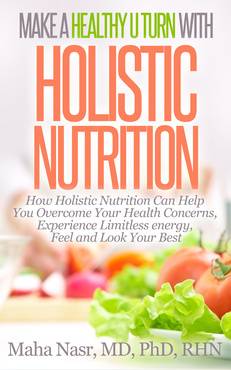Are you a woman in your thirties, forties or early fifties? Do you have some form of hormonal imbalance? This might be irregular periods, PMS symptoms, uterine fibroids, ovarian cysts, breast cysts or menopausal symptoms such as hot flashes or sleeplessness. Are you aware that your body is going through a very critical period called perimenopause? Sometimes also referred to as pre-menopause.
What is perimenopause?
Perimenopause marks the beginning of hormonal decline in women. It usually starts in our thirties when estrogen levels fall gradually until we hit menopause in about a decade. Perimenopause is the transitional stage from normal periods to no periods at all.
Although this transitional period is very critical in every woman’s life, it’s given very little attention.
During perimenopause there is usually a severe hormonal imbalance which could have serious health consequences.
Why should every woman be concerned about perimenopause?
Many hormones can be unbalanced during perimenopause (estrogen, progesterone, testosterone, dehydroepiandrosterone, and cortisol) causing disturbing symptoms.
Hormonal surges and lows can cause all sorts of symptoms starting from weight gain and fluid retention, mood swings, low energy, depression, irritability, headaches, bloating, hot flashes, sleeplessness, low sex drive and unexplained emotions.
What’s more dangerous is that this hormonal imbalance can also set the stage for female cancers including breast and ovarian cancer.
What’s going on with your hormones during Perimenopause?
During perimenopause, women still have enough estrogen to make a thin lining in their uterus but may be not enough to cause an estrogen peak in every cycle.
An estrogen peak that normally happens in mid cycle is important to trigger progesterone production and feedback inhibition of Follicle stimulating hormone (FSH) production. Without enough estrogen, excessive FSH levels, will overstimulate the ovaries causing ripening and destruction of most of the eggs left.
You might notice that your periods are getting shorter and your breasts are getting lumpier and begin to feel the heat of hot flashes as you get close to menopause. You can find out you have gone from perimenopause to actual menopause by having your FSH levels tested.
A woman is considered in menopause when she goes one year without a menstrual period.
In menopause, you have no more eggs and your ovaries will produce no more estrogen or progesterone. The levels of testosterone will also fall significantly.
The Adrenal Glands and Perimenopause
Late perimenopause is marked by an increase in adrenal activity to make up for the low hormones. It’s important for every woman to realize that the adrenal glands become the primary source of sex hormones after menopause and that’s why we need to take special care of our adrenals at this critical phase.
Women who have poor adrenal function due to chronic stress, poor diet, lack of sleep or excessive caffeine are not able to provide adequate hormones. They may experience a difficult perimenopause and more severe menopausal symptoms.
The Dangers of Hormonal Imbalance during Perimenopause
It’s important to understand that hormonal imbalance is an underlying root cause of so many health issues and diseases. Hormones are important for proper function and proliferation of body cells. During perimenopause hormonal imbalance can promote growth of cells causing chronically painful and lumpy breasts, ovarian cysts, uterine fibroids and also significantly increase the chances of hormone-related cancers.
You might be surprised to know that statistics show that women who are in their mid-thirties to their mid-forties have the highest escalating risk to breast cancer
This period usually coincides with a drop of progesterone and the associated problems of estrogen dominance. Estrogen without progesterone is a setup for many reproductive cancers-not just breast cancer.
Unusual Weight Gain is also a common problem during perimenopause
In my practice as a weight loss consultant I also see, many perimenopausal women experience resistant weight loss, fluid retention and increased belly fat deposition which increase the chances of cardiovascular disease. Estrogen dominance and low progesterone levels coupled with exhausted adrenal glands usually complicate the condition.
There is also increased bone loss and increased chances of osteopenia and osteoporosis during this period
A bone density test can help you detect early bone loss during perimenopause so that you can start taking protective measures before you hit menopause.
Conclusion
Perimenopause is a critical phase in a woman’s life that is marked with severe hormonal imbalance that can have serious health consequences. It needs much more attention from the medical community and awareness from women themselves.
Taking good care of your health and supporting your body during this phase, can protect you from so many serious health issues associated with the hormonal imbalance that marks this phase.
As a holistic nutritionist and weight loss consultant, I guide women through a hormone-balancing customized program that helps them lose the unwanted fat and experience higher energy levels, happier mood and better sleep,
Back To You
If you are a woman in your thirties, forties or early fifties, you need to start making some important diet and lifestyle changes. This is especially important if you have high stress levels, been diagnosed with benign breast cysts, ovarian cysts or fibroids, you need to start making diet and lifestyle changes. This will help you to avoid the dangerous health complications of hormonal imbalance and to set the stage for a smooth menopause later in your life.
We are currently offering tele-health coaching via Zoom and phone, so we can help you if you are out of area. If you need help with your health and nutrition, sign up for a 15 Min Discovery Call where we discuss your current goals and concerns and how we can help you.



